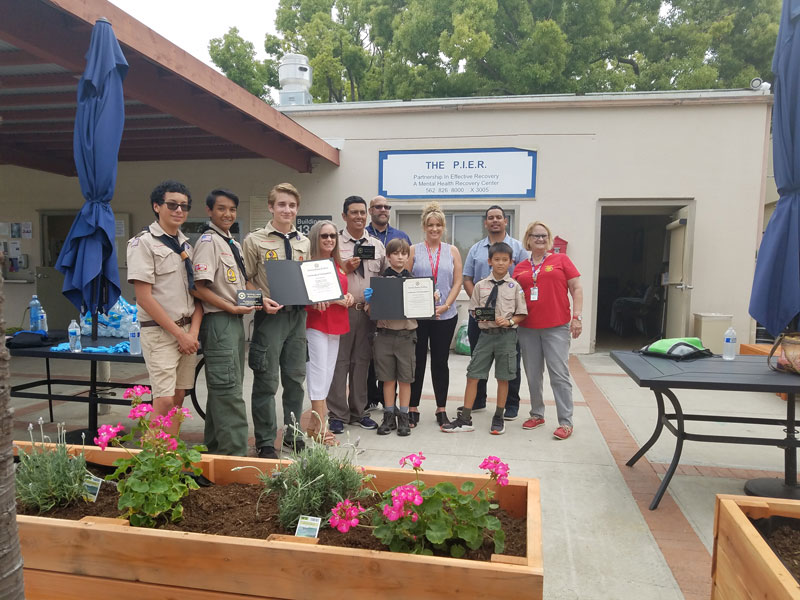The PIER Center in Long Beach, Calif., is a place made by veterans for veterans.
PIER (Partnership in Effective Recovery) focuses on providing homeless veterans with basic needs so they can begin to rebuild their lives. The center hosts daily free lunches, provides access to showers and laundry facilities, and supports veterans through counseling. No fewer than 30 veterans visit the center each day.
“Full bellies allow a veteran to not feel so desperate,” said Tami Bell, member of American Legion Auxiliary Lakewood Unit 496. “Therefore, they are more likely to be receptive to seeking services to bring them back into the community to lead productive lives.”
The PIER Center runs entirely on community donations, so it cannot always provide the amenities necessary to serve veterans of differing abilities. That’s why Unit 496 decided to step in.
With the help of an American Legion Auxiliary Foundation Veteran Projects Fund grant, Unit 496 supported a local Boy Scout with the supplies needed to construct wheelchair-accessible picnic tables and planter boxes for veterans to enjoy.
These materials will help veterans of all abilities enjoy sitting around a table together. Though it may seem like a small change, homeless veterans often struggle to be reacclimated to society, so this sense of community with peers who share their struggles can be a huge step in the recovery process. It is especially important for those veterans who are typically isolated from these activities because of their ability.
In addition, raised planter boxes add massive value to the PIER Center as a whole. Their impact is threefold: they beautify the center, making it a more welcoming space; they provide the center with fruits and vegetables which they can serve to veterans, cutting overall upkeep costs; and they are maintained by veterans who can use gardening as a therapeutic exercise.
“This project is hands on rather than hands off,” Bell said.
“It’s designed as a learning and development project for those veterans who do not have the opportunity to do these things. It’s reflective — they can see their accomplishments and steady their minds.”
Want to support a similar project with your American Legion Auxiliary unit or department? Click here to find out more.
Want to support these sorts of projects financially? Give to the American Legion Auxiliary Foundation’s Veteran Projects Fund here.

